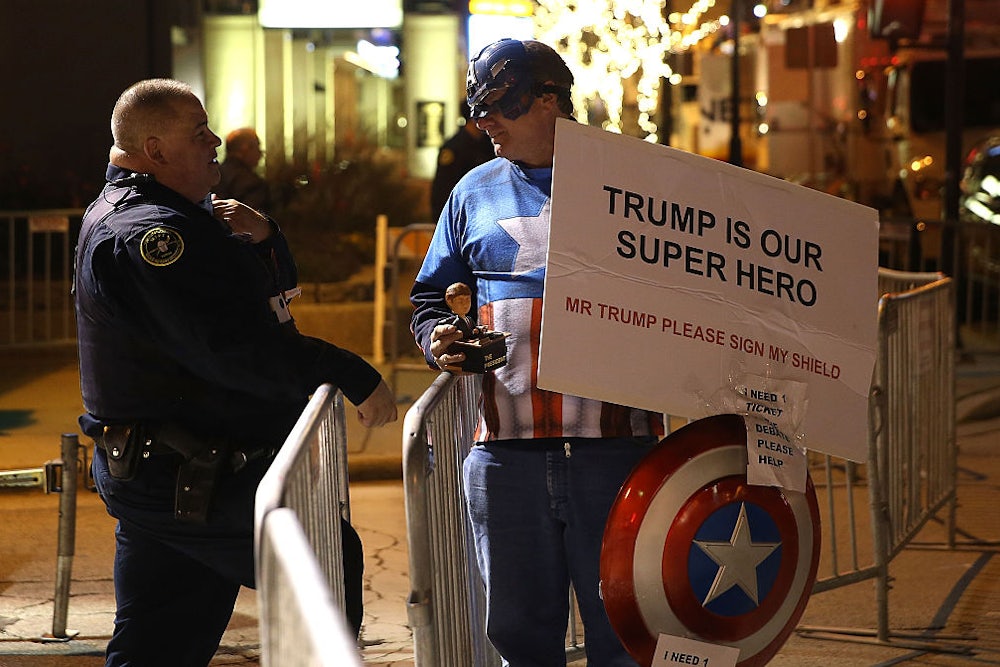Donald Trump’s 100th day in office will be on Saturday and Trump is approaching that marker in two contradictory ways. He and his surrogates are trying to get ahead of the main narrative—that Trump has accomplished very little—by arguing that it’s an arbitrary standard that doesn’t really say anything about a president’s administration. Appearing on Meet The Press on Sunday, White House Chief of Staff/guy who hasn’t been fired yet Reince Priebus made the case that presidents don’t actually do anything during their first 100 days. “Barack Obama had a pre-baked stimulus package that started in October of the election year which was passed in February. It was pre-baked,” Priebus pleaded. “George Bush didn’t get any major legislation until June; Clinton, August 10th; Bush 41, a year and a half later; Reagan, August 13th; Carter, 658 days after he took the office; Nixon, one year; Johnson 225 days. Here’s the deal. The president signed over 28 bills already. Health care may happen next week. It may not.”
Trump himself made this case in a tweet:
No matter how much I accomplish during the ridiculous standard of the first 100 days, & it has been a lot (including S.C.), media will kill!
— Donald J. Trump (@realDonaldTrump) April 21, 2017
The administration, however, is also contemplating using the threat of a government shutdown to secure a legislative victory, pledging to link the funding for a border wall to raising the debt ceiling. This is, as my colleague Brian Beutler wrote today, not the shrewdest strategy in the world. But Trump is nevertheless pressing the case.
The Wall is a very important tool in stopping drugs from pouring into our country and poisoning our youth (and many others)! If
— Donald J. Trump (@realDonaldTrump) April 24, 2017
....the wall is not built, which it will be, the drug situation will NEVER be fixed the way it should be!#BuildTheWall
— Donald J. Trump (@realDonaldTrump) April 24, 2017
The case that Trump is making—that The Wall is essential to ending the heroin epidemic—is fundamentally wrong. “A wall alone cannot stop the flow of drugs into the United States,” Christopher Wilson, the deputy director of the Mexico Institute at the Wilson Center, told Vox last week, after Trump made a similar claim. “If we’re talking about a broader increase in border security, there could be some—probably minor—implications for the overall numbers of drugs being trafficked. But history shows us that border enforcement has been much more effective at changing the when and where of drugs being brought into the United States rather than the overall amount of drugs being brought into the United States.”
Traffickers simply change their means of smuggling drugs into the country when new obstacles present themselves. And perhaps most importantly, the best way to slow the heroin crisis would be to slow the opioid crisis, which would require reform of the drug industry.
